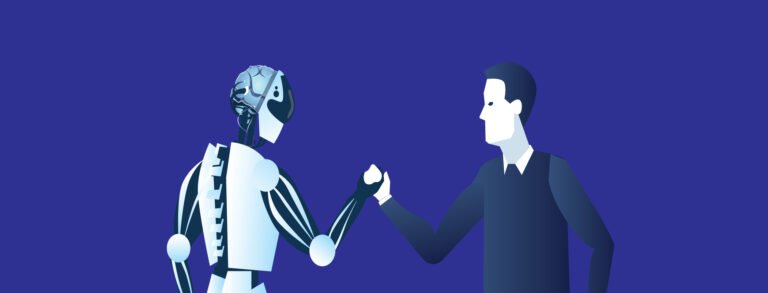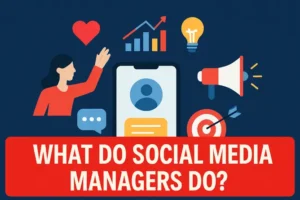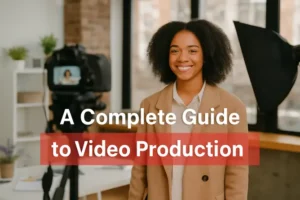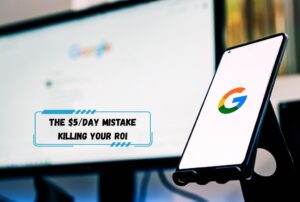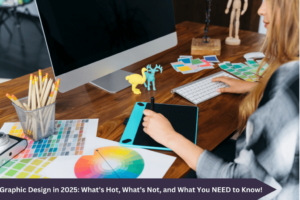So you’re interested in AI vs. Human Video Editors, who will survive ? huh? Well, have you heard about how AI is poised to shake up the world of video editing? For decades, professional human editors have been the masters of cinematic storytelling, painstakingly crafting and curating raw footage into a cohesive narrative. But now AI video editing tools are emerging that can analyze footage, detect key moments, and automatically generate a polished edit complete with transitions, pacing, and music. As an amateur videographer, the idea of AI handling tedious editing tasks so you can focus on shooting and creating sounds pretty appealing. But what about the human editors—will AI replace them entirely or will they work together in harmony? Read on to find out how AI vs. Human Video Editors creativity may team up to revolutionize the editing industry.

The Rise of AI in Video Editing
AI has slowly been making its way into video editing software and tools. As the technology improves, AI may eventually take over some of the tasks typically performed by human editors.
- AI can analyze raw footage and automatically pick out the best parts based on things like faces, emotions, actions, etc. This could save editors hours of work reviewing and sorting through clips.
- AI tools are getting better at finding mistakes like color inconsistencies, audio problems, and continuity errors. AI could handle quality control and fix issues human editors might miss.
- AI may eventually get good enough to put together a rough cut of a video by stitching together the best clips, adding transitions, and synchronizing it all to a soundtrack. Human editors could then polish and finalize the edit.
Of course, AI cannot replace the creative eye and judgment of an experienced human editor. But AI could handle many of the routine tasks, freeing up editors to focus on the creative parts of their job. The future of video editing will likely involve close collaboration between human and AI.
AI won’t revolutionize the editing industry overnight. But as the technology continues to advance, AI tools will become increasingly useful resources for video editors to streamline their workflows and take their craft to new creative heights. The rise of AI in video editing means an exciting new chapter for the industry.
What AI Video Editing Software Can Do- in AI vs. Human Video Editors
AI video editing software has come a long way in recent years. Now, programs powered by artificial intelligence can handle many of the routine tasks human editors perform.
- AI can analyze footage and automatically select the best clips based on things like facial expressions, camera movement, and pacing. This saves editors hours of watching raw footage to find the gems.
- AI is great at tasks like color correction, exposure adjustment, and white balance. The software can analyze the overall color palette and lighting in your footage and make adjustments to create a consistent look and feel.
- AI excels at creating rough cuts and assembling the clips and shots in a logical sequence. Editors can then refine the AI’s selections and make the creative choices required for a polished edit.
- AI can add graphics, titles, transitions, and effects. Things like lower thirds, end credits, fades, and dissolves are well within the capabilities of AI video editing tools.
Of course, human judgment, creativity, and storytelling ability are still essential for compelling video content. AI may never match the creative skills, intuition, and emotional intelligence of human editors. But by taking over many of the routine technical tasks, AI allows editors to focus on the creative parts of their jobs. This partnership between humans and AI could revolutionize the editing field, allowing for higher-quality work produced in a fraction of the time. The future of video editing looks bright!
Limitations of AI Video Editing Compared to Human Editors
While AI video editing tools have come a long way, human editors still have some key advantages in AI vs. Human Video Editors
Creativity and an Artistic Eye
Human editors have an intuitive sense of creativity, emotion, and storytelling that AI has yet to achieve. Editing requires an artistic eye to choose the perfect shots, set the right pace and tone, and elicit the intended emotional response from viewers. AI can analyze data to detect patterns but can’t replicate the human creative process.
Handling Complexity- in AI vs. Human Video Editors
AI tools work best with large amounts of data to analyze, but they struggle with more complex, abstract tasks like editing. Editing requires making subtle, nuanced choices and handling exceptions and one-off situations that AI can’t easily generalize to. Editing also often involves dealing with imperfect, messy footage and creating order and flow, which demands a human touch.
Building Trust and Managing Sensitive Content
Human editors are often needed to handle sensitive footage or messages. They have a sense of ethics and responsibility that AI lacks. Viewers also tend to trust human editors more and may doubt or question the choices of an AI editor. For sensitive footage or any content meant to inspire trust or connection, human editors are superior.
While AI will continue to improve and take over some routine editing tasks, human editors provide creativity, nuance, and sensitivity that AI cannot easily replicate. The future of video editing will likely involve collaboration between human and AI, with each playing to their strengths. AI can handle repetition and analysis, freeing up human editors to focus on the creative and complex parts of the job. Together, AI and human editors can achieve more than either one alone.
Will AI Replace Human Video Editors?
AI has made massive strides in recent years, with systems that can generate realistic images, hold conversations, drive cars and more. But will AI ever completely replace human video editors? While AI tools are transforming parts of the video editing process, human editors still reign supreme in many areas.
AI Excels at Repetitive, Tedious Tasks
AI excels at handling repetitive, tedious tasks like transcoding footage, syncing audio, and stabilizing shaky video. These time-consuming chores free up human editors to focus on more creative work. AI can also quickly search through hours of footage to find the best clips based on keywords, tags or descriptions. This makes the editing process faster and more efficient.
Humans Have Creativity, Emotional Intelligence
Human editors have creativity, emotional intelligence, and intuition for storytelling that artificial intelligence has yet to achieve. Coming up with an engaging narrative, setting the right emotional tone, and crafting seamless transitions between scenes requires human judgment and artistry.
AI cannot easily replicate qualities like empathy, personality, and life experiences, all of which shape how human editors craft visual stories.
AI Lacks Context and Common Sense
AI systems today lack context and common sense reasoning. They struggle with ambiguous concepts or picking up on subtle cues that would seem obvious to a human. An AI may miss an out-of-focus shot, shaky camera movement, or unflattering angle that a human editor would instantly notice and remove. AI also has trouble with subjective tasks like choosing the most impactful or cinematic shots without human guidance.
While AI will continue to transform parts of the video editing workflow, human editors are here to stay. Their creativity, emotional intelligence, and ability to craft compelling stories will be hard for any AI to match. The future is one of collaboration between humans and artificial intelligence, with each playing to their strengths. AI excels at efficiency but relies on human direction. Human editors thrive on creativity but benefit from AI assistance. Together, they’re an unstoppable duo.
The Future of AI and Video Editing
AI Will Continue to Improve
AI video editing tools will only get smarter and more capable over time. As AI systems analyze more footage and editor interactions, their algorithms become more refined and accurate. They learn editors’ preferences and get better at suggesting and performing edits that match a human editor’s style and vision.
More Efficient Workflows
Using AI for tedious tasks like organizing footage, creating rough cuts, and syncing audio will speed up editors’ workflows and allow them to focus on the creative parts of the job. AI can handle the repetitive, mechanical parts of editing so editors have more time for the artistic side of storytelling.
Augmented Creativity
Rather than replacing human editors, AI will augment their creativity. AI can suggest shots, sequences, music choices, and other edits that editors may not have considered. Editors can then choose to accept or reject these suggestions. Over time, as AI systems get to know an editor’s creative preferences, their recommendations may become more useful and inspire new ideas. AI could help editors break out of habitual patterns and push the boundaries of their creativity.
Lower Costs and Wider Access
As AI video editing tools improve and are integrated into mainstream editing software, they may lower costs for video editing and make high-quality editing more accessible to amateur and hobbyist creators. Basic editing that once required expensive equipment and training may be possible with easy-to-use AI tools. More people could tell their stories through video, not just professionals with years of editing experience.
AI will not replace human video editors but will rather augment their work, enhance their creativity, and expand the possibilities of visual storytelling. The role of the editor will evolve to focus more on the artistic aspects of the craft as AI handles more of the technical minutiae. The future of AI and video editing looks bright, as long as we design AI systems to empower human editors rather than compete against them.
Conclusion
So while AI-based video editing tools are still relatively new, they show a lot of promise. If you’re a video creator, it may be worth testing some of the AI options to see if they can streamline your workflow and save you time. At the very least, they may be able to handle some of the more routine editing tasks, freeing you up to focus on the creative aspects of your videos. The technology will only continue to improve over time. Before you know it, AI editors might revolutionize the video editing industry and change the way we all create and consume digital content. The future is coming, so you might as well hop on board!

